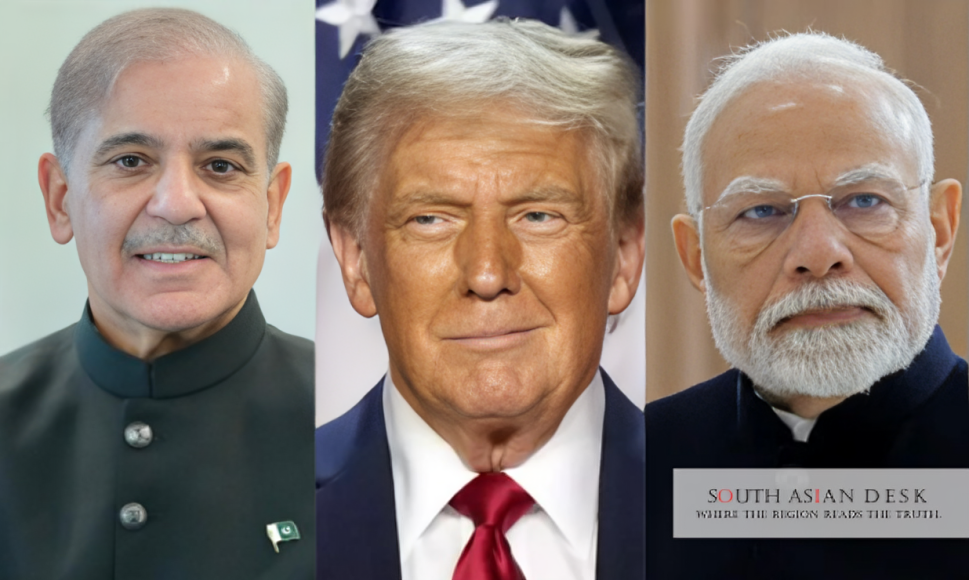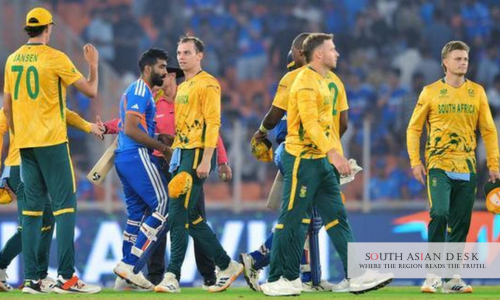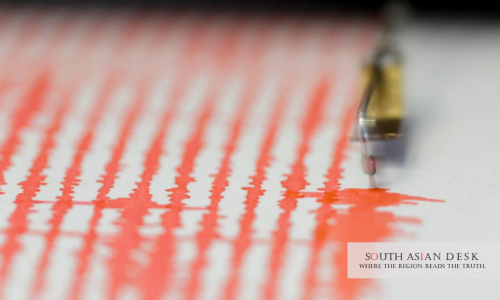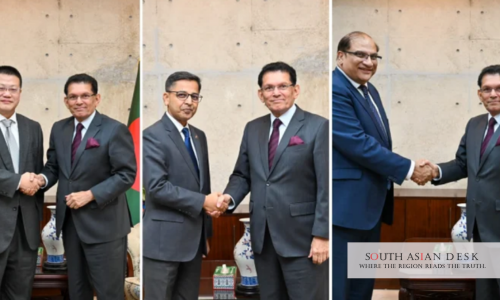Washington: US President Donald Trump tells Modi to avoid wars with Pakistan during a Diwali phone call on 21 October 2025. The discussion, which Trump described as a great conversation, focused on trade and peace amid ongoing global tensions. This revelation came at a White House Diwali event attended by Indian American leaders. The story matters in South Asia as it highlights US involvement in de-escalating conflicts between nuclear-armed neighbours India and Pakistan. With a history of border disputes, such diplomatic interventions could stabilise the region, affecting trade routes and security alliances.
Trump Modi Diwali Call Pakistan Details
At the White House Diwali celebration on Monday, 21 October 2025, Trump shared insights into his recent phone call with Modi. He stated that they discussed trade extensively but also touched on ensuring no wars with Pakistan. Trump emphasised the role of trade in preventing conflicts, saying the involvement helped achieve peace between India and Pakistan.
Trump tells Modi no war Pakistan emerged as a key phrase in his remarks, linking back to earlier US efforts in the region. He praised Modi as a great person and friend, noting their strong relationship over the years. The call also covered Modi’s stance on reducing oil purchases from Russia to end the Ukraine war, aligning with US interests.
Modi responded to the call via a post on X at 2:41 AM GMT on Wednesday, 22 October 2025. He thanked Trump for the phone call and warm Diwali greetings. Modi highlighted the festival of lights, hoping the two democracies would illuminate the world with hope and stand united against terrorism in all forms. This message underscores India’s priority on counter-terrorism, often directed at cross-border threats from Pakistan.
The Trump Modi Diwali call Pakistan conversation reflects broader US foreign policy under Trump, who claimed Credit for forging peace worldwide. He mentioned achieving total peace in the Middle East and putting America first while encouraging nations to get along.
Background
Tensions between India and Pakistan escalated in early May 2025 following an attack in Indian-occupied Kashmir’s Pahalgam. India launched Operation Sindoor, targeting sites inside Pakistan and causing civilian casualties. Pakistan retaliated with Operation Bunyanum Marsoos, using fighter jets, missiles, artillery, and drones. The four-day conflict resulted in dozens of deaths on both sides.
Pakistan claimed to have downed six Indian fighter jets, including French-made Rafales. India acknowledged some losses but denied the figure of six. In September 2025, Pakistan Prime Minister Shehbaz Sharif addressed the United Nations General Assembly, stating Pakistan turned seven Indian jets into scrap and dust.
Trump asserted he brokered the ceasefire by threatening trade restrictions on both nations. He described calling both leaders and using economic leverage to halt the fighting between the two nuclear powers. Sharif praised Trump’s leadership and proactive role in achieving peace. However, Indian officials denied Trump’s involvement through trade threats, with General Chauhan noting losses but focusing on the operation’s objectives.
This background explains why Trump tells Modi no war Pakistan resonates now. The May incident marked the latest flare-up in a decades-long rivalry, involving territorial disputes over Kashmir and accusations of terrorism support.
Modi Trump No Wars Pakistan Implications
The Modi Trump no wars Pakistan dialogue signals continued US mediation in South Asian affairs. Analysts suggest it could lead to renewed talks on confidence-building measures, such as border patrols or trade agreements. Pakistan’s economy, reliant on international aid, might benefit from stable relations, while India seeks to focus on growth without distractions.
In the call, Trump reiterated claims about Modi’s reduced Russian oil buys, stating India cut back significantly to pressure an end to the Ukraine conflict. This aligns with US sanctions and energy policies, potentially strengthening Indo-US ties. Modi’s reference to united action against terrorism adds a layer to the Trump Modi Diwali call Pakistan narrative. India has long accused Pakistan of harbouring militants, a charge Islamabad denies. The statement could prompt diplomatic pressure on Pakistan to address these concerns.
Regional experts note that such high-level discussions often precede multilateral forums. With the UN and other bodies monitoring South Asia, the conversation might influence upcoming resolutions on nuclear non-proliferation.
What’s Next
Future interactions between the leaders could include a state visit or joint statements on regional security. Observers watch for any trilateral talks involving the US, India, and Pakistan to formalise no-war commitments. Economic incentives, like trade deals, might encourage compliance.
Published in SouthAsianDesk, October 22nd, 2025
Follow SouthAsianDesk on X, Instagram, and Facebook for insights on business and current affairs from across South Asia.






